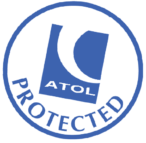Capital: São Tomé
Time zone: GMT
Telephone services: Country Code: 239
Outgoing Code: All international calls must go through the operator
Emergency telephone numbers: Not present.
Tourist information: Refer to the Consulate.
Passport information: Valid passport required by all. Return Ticket Required. Requirements may be subject to change at short notice. Contact the embassy before departure
Visa information: Required by all, Transit visas are not required by those with tickets for onward journeys on the same day.
Health information: Polio, Typhoid: Vaccination recommended.
Malaria: Exists throughout the year in the Falciparum variety. Resistance to chloroquine has been reported.
Yellow Fever: Vaccination is strongly recommended to all travellers. A certificate is required for travellers arriving from infected areas.
Other Health Risks: Bilharzia, Rabies
Food & drink: Water is untreated and not safe to drink. Avoid dairy products as they are not pasteurised. Fruit and vegetables should be peeled before consumption.
Currency: Dobra (Db) = 100 centimes Credit cards are not accepted, US$ traveller’s cheques are preferred.
ATM availability: Unavailable
Cost of living: Very inexpensive, without a tourist industry and unspoilt by external influences
Languages: Portuguese and native dialects are most widely spoken. French and English are also spoken
Weather: Dry Season – June to Sept and Dec to beginning of Feb. The South is wetter than the North
Electricity: 220 Volts AC.
Post: Up to 2 weeks
Transport: FLIGHTS: There are 3 flights a week from São Tomé to Principe. ROADS: Generally deteriorating therefore a 4 wheel drive is required to get around. BUSES: A bus service is in operation. TAXIS: operate.
Special information: Usual social courtesies should be shown. Portuguese influence is still dominant

